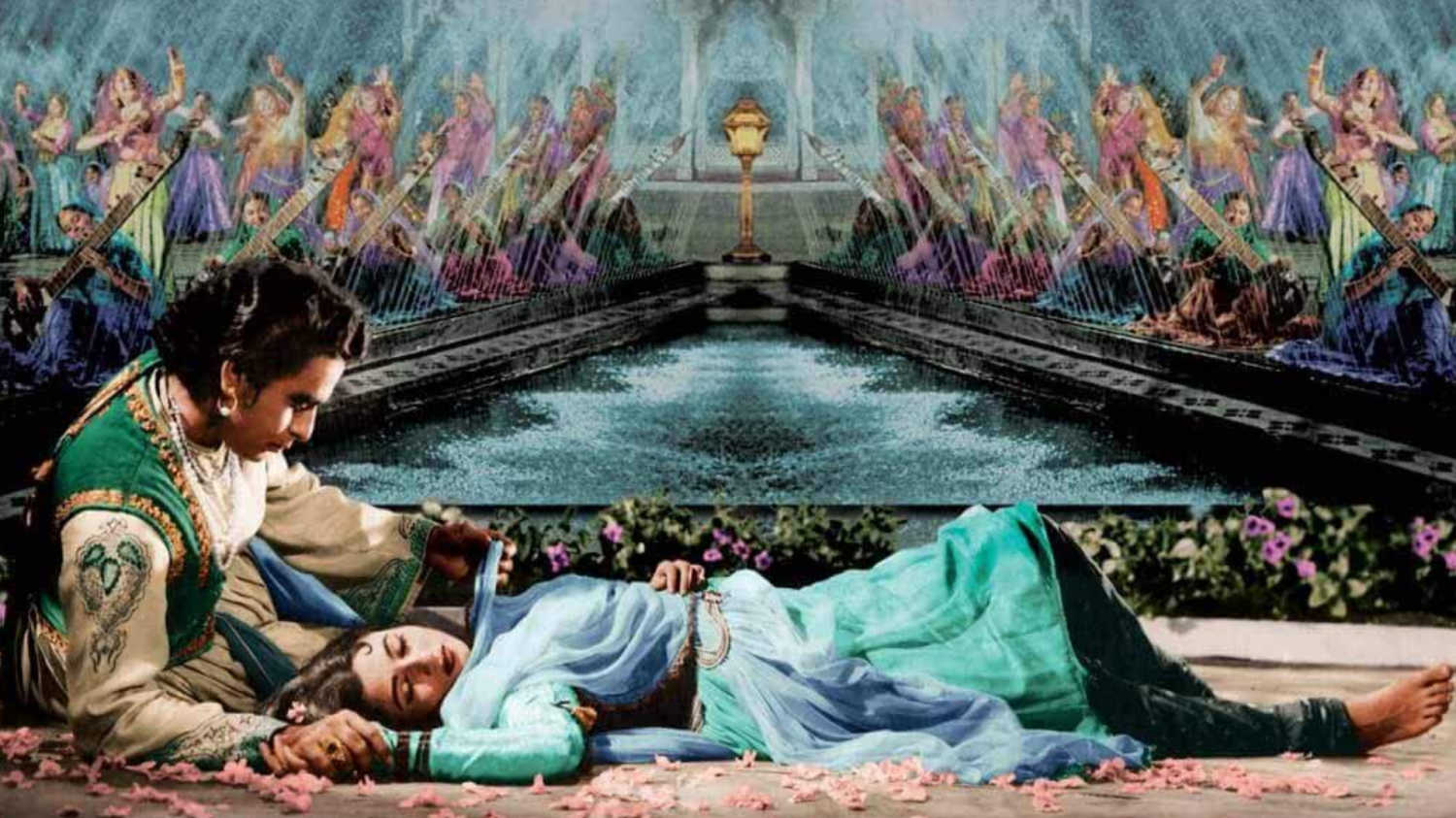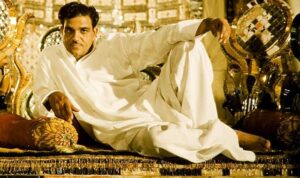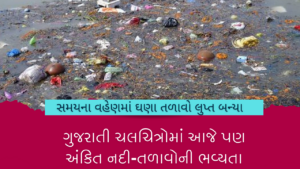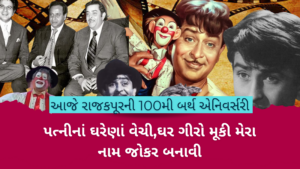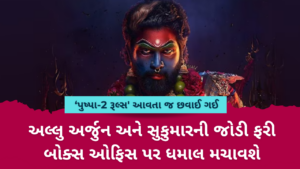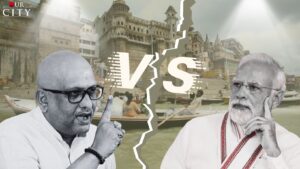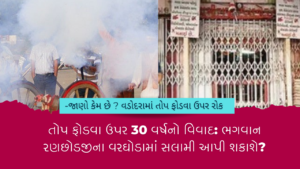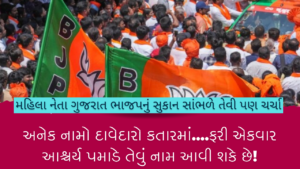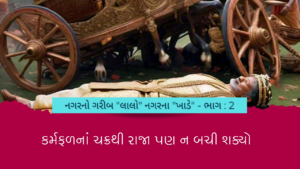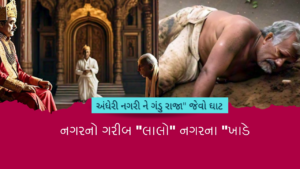“मैं हिंदुस्तान हूँ, हिमालय मेरी सरहदों का निगेहबान है, गंगा मेरी पवित्रता की सौगंध,
तारिख की फ़िदा से मैं अंधेरों और उजालों का साथी हूँ,
और मेरी हाथों में संगमरमर की चादरों में लिपटी
ये इमारतें दुनिया से कह रही हैं की ज़ालिमों ने मुझे लूटा और मेहरबानो ने मुझे सवारा,
नादानों ने मुझे ज़ंजीरें पहना दी और मेरे चाहने वालों ने उन्हें कांट फेंका“
 These are the opening lines of K. Asif’s Mughal- e- Azam. An epic that surely no one would overlook. Madhubala, Dilip Kumar and Prithviraj Kapoor are the whole and soul of the movie. While the plot looks straightforward, it contains a number of interesting details that makes the entire experience of watching this film memorable. Let’s plunge into this Dastaan-e-Mughal-e-Azam.
These are the opening lines of K. Asif’s Mughal- e- Azam. An epic that surely no one would overlook. Madhubala, Dilip Kumar and Prithviraj Kapoor are the whole and soul of the movie. While the plot looks straightforward, it contains a number of interesting details that makes the entire experience of watching this film memorable. Let’s plunge into this Dastaan-e-Mughal-e-Azam.
The creator
Asif Karimuddin, popularly known as K. Asif was the mastermind behind the creation of this masterpiece. He was deeply committed and passionate which reflected in his narrative that helped the audience picture everything. Asif had spent 14 years making the movie and nine years filming it. He oversaw all of the producers, music, sets, actors, and sets. In his entire life, he only directed two films. The Mughal-e-Azam and Phool. But one of them managed to immortalise him in the chronicles of Indian cinema.
The only way to understand his passion is by the fact that he went barefoot alongside the camera on hot sand only because Prithviraj Kapoor had to do so and his feet were burned.
Asif had such a clear vision that he objected outright when Dilip Kumar complained that one of his dialogues was inferior to Prithviraj Kapoor’s, stating, “I am making Mughal-e-Azam and not Saleem-e-Azam.” Despite all the delays, he never once sought for an increase or amended his contract during the entire movie, whereas everyone else did. For him, it wasn’t just a movie; it was his life’s work, his dream, and his mission.
His Inspiration
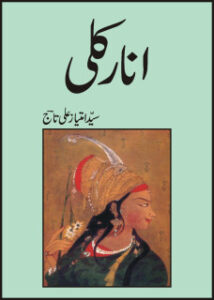
The drama “Anarkali” by Imtiaz Ali “Taj” written in 1922, however at the time, was regarded to be quite avant-garde and not well received. The man K. Asif was born on June 14 of that same year in the Uttar Pradesh district of Itawa by coincidence. Perhaps the tale required Asif’s vision and flair, and he was created to provide it. After seeing the performance 22 years later, he decided to make it his life’s work to turn the tale into a movie.
Anarkali’s tale was written in Bangla by Rabindranath Tagore, and Firaq Gorakhpuri translated it into Urdu. However, the fact that this cycle began as a play, evolved into a movie, and then was reborn as a play, actually puts an end to it.
The Journey
With the intention of producing the movie alongside his friend Shiraz Ali Hakim, he initially cast Chandramohan as Akbar, DK Sapru as Saleem, and Nargis as Anarkali. At the Bombay Talkies studios, production on the movie began in 1946. Fortunately, India gained independence, but sadly, the partition also took place. Shiraz was a supporter of Jinnah, and when he began to experience a lot of hostility here, he was forced to flee to Pakistan. Imagine if it had been shelved back then due to political reasons! Asif, however, started working on the film again in 1952, with a changed producer.
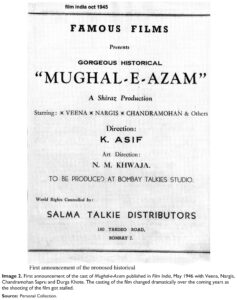 Despite Asif’s wishes, Chandramohan was unable to continue playing Akbar because of eye loss sustained in a car accident. Asif first choice was not Dilip Kumar as he was very slim for the part of Saleem.
Despite Asif’s wishes, Chandramohan was unable to continue playing Akbar because of eye loss sustained in a car accident. Asif first choice was not Dilip Kumar as he was very slim for the part of Saleem.
“He has the fire and may play the role ten years later,”
Asif observed,
“but right now he is not ready.”
Once the filming started, Asif noticed that Dilip Kumar seemed ideal for the part. Once the film commenced, Nargis’ refusal to play Anarkali became the main problem. Asif now began looking for his ideal Anarkali. Newspapers ran advertisements, but no one seemed appropriate. Once more, coincidence was at work, and Madhubala, who at the time didn’t get along well with Asif, approached him and requested the position.
The film was also liked in Pakistan. Actually, individuals from Pakistan, including Pakistan’s cricket captain Fazal Mahmood, took visa to see this film. It’s interesting that special preparations were made for them, and they received special tickets for the movie.
Music: The heart and soul

Nobody can deny the fact that the film’s music was its defining element, and Asif was well aware of this. He had requested a musical masterpiece from Naushad Ali while carrying a bag of money. Initially offended by the display of financial clout, Naushad eventually accepted when Asif apologised. Asif then wanted Tansen to appear to be performing the song. Asif and Naushad decided to visit Ghulam Ali, he appeared uninterested and declared that he had no interest in films. He deliberately lied about his fees, stating that they would be 25,000 if they wanted him. Surprisingly, Asif immediately gave him 10,000 in advance, leaving Ghulam Ali shocked.
The epic song “Pyaar Kiya to Darna Kya” is the soul of this movie. It evolved into the ‘Love Anthem’ for all the rebellious lovers. It was chosen by Naushad Ali after 150 rejections, and the song itself costs 10 lakh. Shakeel Badayuni and Naushad had to spend the entire night writing lyrics and putting them into music.
Lata Mangeshkar sang this song in the studio bathroom because
the echo in the studio wasn’t right.
Along with Mohammad Rafi, a chorus of 100 vocalists performed the song “Mohabbat Zindabad”. Anarkali had to do Kathak in another beautiful song from the film “Mohe Panghat Pe”, although Madhubala wasn’t a professional dancer. All thanks to Lacchu Maharaj’s meticulous choreography. The then-Chinese President XiJuan Lai and renowned poet Faiz Ahmed Faiz observed the recording of the song “Mohe Panghat” in production. Zulfiqar Ali Bhutto, who eventually become Pakistan’s Prime Minister, loved the song so much that he would regularly visit the set to hear it.
The Marvellous Sets
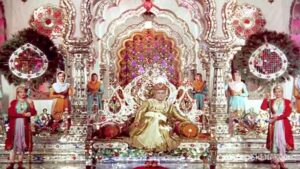 The large, expensive canvas that was employed to create this film was another element that contributed to its epic nature. Asif had a strong desire to build a Sheesh Mahal duplicate. Heavy glass sets were built in Lahore for this purpose. This glass, which was carefully imported from Belgium, wasn’t cheap or simple; it was quite expensive and delicate. A fascinating incident occurred during Eid when Shapur Ji Mistri, the movie’s financier, arrived with some gold coins and one lakh rupees as ‘Eidi’ for Asif. However, Asif immediately returned the one lakh to him and instructed him to use it to import his glass from Belgium.
The large, expensive canvas that was employed to create this film was another element that contributed to its epic nature. Asif had a strong desire to build a Sheesh Mahal duplicate. Heavy glass sets were built in Lahore for this purpose. This glass, which was carefully imported from Belgium, wasn’t cheap or simple; it was quite expensive and delicate. A fascinating incident occurred during Eid when Shapur Ji Mistri, the movie’s financier, arrived with some gold coins and one lakh rupees as ‘Eidi’ for Asif. However, Asif immediately returned the one lakh to him and instructed him to use it to import his glass from Belgium.
The tale did not, however, end there. The glass walls were coated with wax and bright clothing to offset the fact that the glasses were reflecting a lot of light. Additionally, 500 Trucks were employed to light and illuminate the scene with their flashlights. In order to maintain historical accuracy, even the costumes were taken out on loan from the museum.
Reel v/s Real Emotions
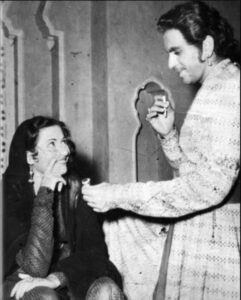 Everyone’s personal lives were changing while the movie took so long. Other than the relationship between Dilip Kumar and Madhubala, Asif also married Akhtar Begum, who was Dilip Kumar’s sister. Asif immediately commanded Dilip Kumar to “keep your stardom away from my house” when he attempted to resolve some conflicts between the married spouses. Dilip Kumar was so furious over this that he didn’t watch the movie or go see the preview. He only watched it ten years after its initial release.
Everyone’s personal lives were changing while the movie took so long. Other than the relationship between Dilip Kumar and Madhubala, Asif also married Akhtar Begum, who was Dilip Kumar’s sister. Asif immediately commanded Dilip Kumar to “keep your stardom away from my house” when he attempted to resolve some conflicts between the married spouses. Dilip Kumar was so furious over this that he didn’t watch the movie or go see the preview. He only watched it ten years after its initial release.
The father of Madhubala, Adahullah Khan, used to be present on the shooting sets. This greatly upset Asif. The actual issue occurred when Dilip Kumar and Madhubala had to shoot intimate scenes together. Adahullah Khan loved playing poker, so Asif employed one of his men to keep him occupied while he purposely lost every game.
Anarkali Slapped
 Saleem had to slap Anarkali in one episode because he was upset with her. However, the scene contained some intriguing occurrences. In reality, Dilip Kumar and Madhubala were romantically involved. But under pressure from her family, Madhubala turned down Dilip Kumar’s offer. As a result, Asif had to intervene and slap Madhubala because Dilip Kumar was unable to hit her severely. Then Dilip Kumar slapped her firmly while filming the scene. Everyone began to fear that Madhubala would abandon the sets as a result.
Saleem had to slap Anarkali in one episode because he was upset with her. However, the scene contained some intriguing occurrences. In reality, Dilip Kumar and Madhubala were romantically involved. But under pressure from her family, Madhubala turned down Dilip Kumar’s offer. As a result, Asif had to intervene and slap Madhubala because Dilip Kumar was unable to hit her severely. Then Dilip Kumar slapped her firmly while filming the scene. Everyone began to fear that Madhubala would abandon the sets as a result.
But Asif rushed to Madhubala and whispered to her,
“He still loves you, only a sincere lover can do that.”

